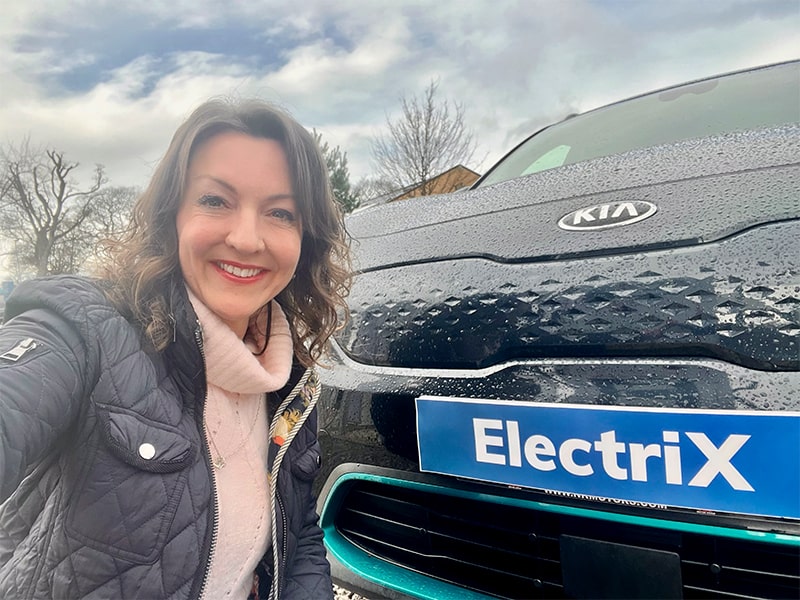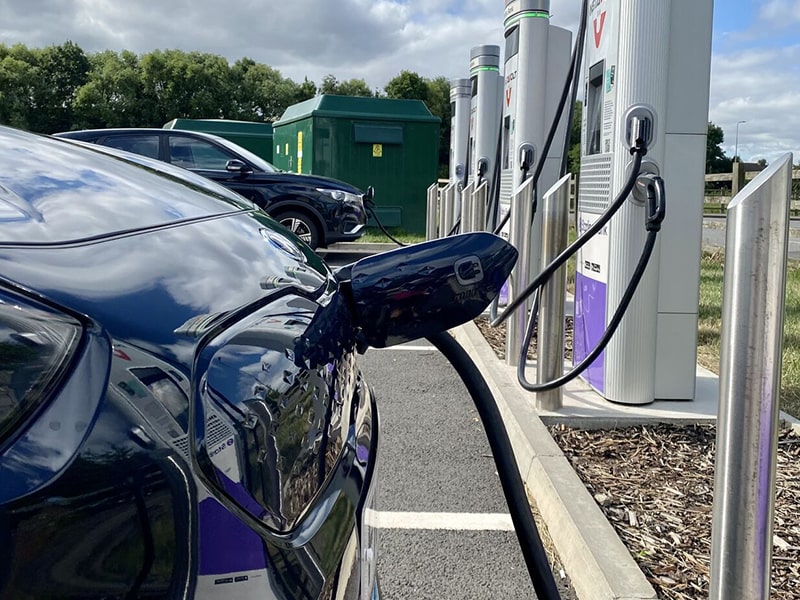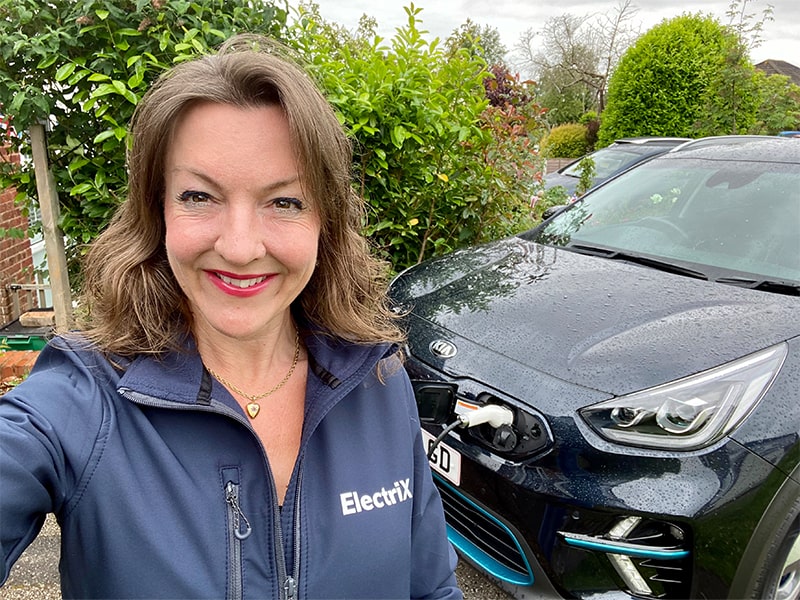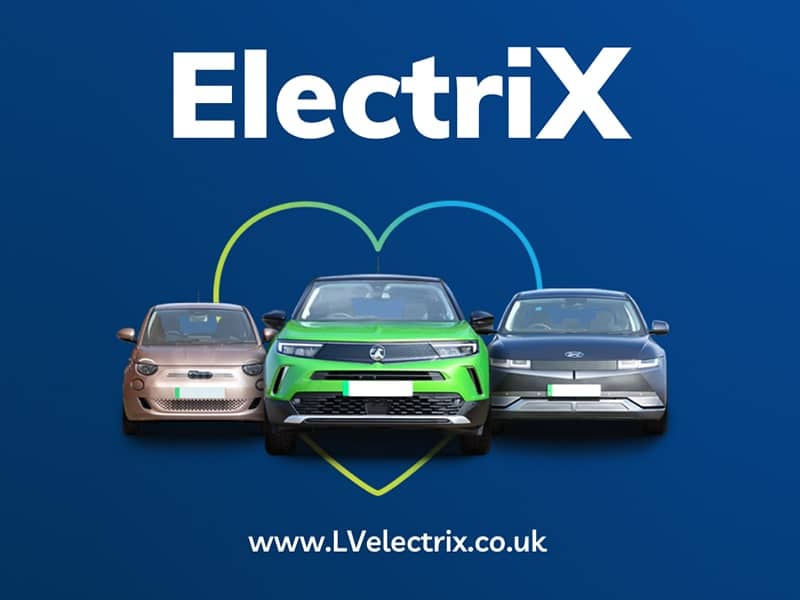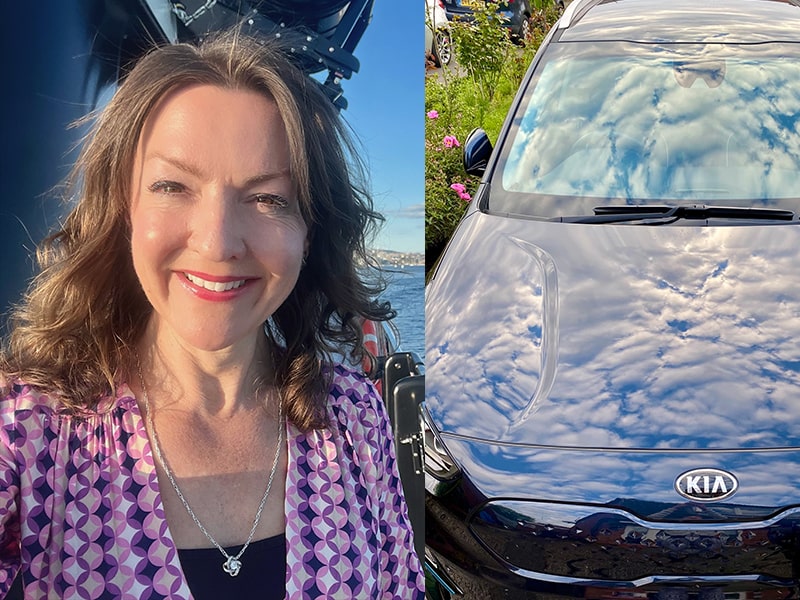
I was smitten after my first ever test drive in an electric car, back in 2012, which feels like an age ago now. I was tickled when I asked the person in the passenger seat “So how do I turn this thing on?” and they replied “Gill, it is on.” And then I put my foot on the accelerator and I glided off effortlessly, with what I now know to be the EV grin on my face. But it took me a few years to actually make the switch to an electric car, because I had a fully paid up old diesel car that worked hard to get me and my family from A to B whenever and wherever needed.
The switch moment came when that car was unceremoniously written off, the week before Christmas, in 2018. People I knew in the EV community came to my aid and helped source a second-hand Nissan LEAF. Eighteen months later I switched up to a Kia e-Niro. And I have never looked back.
Why am I reflecting on my journey into EV, and how long it took…? I think it’s because for many people who are really keen to get an electric car, timing has to be right. It’s not going to happen for everyone overnight, and that’s ok. We’ll get there. Certainly for the UK, the numbers of EV deliveries tell a positive story. In March we saw a record monthly high of battery electric vehicle deliveries, representing growth of 18.6%, with a market share of 16.2%. This is still some way off the heady heights of Norway’s figures, where it is estimated that 20% of all cars on the roads are electric. To put this into content, we’re at around 2% in the UK.
We are now seven years away from 2030, the point at which we will no longer be able to buy a new petrol or diesel car in the UK. Current forecasts suggest that we’ll have 8-10 million all-electric cars on our roads by then. That’s about one third of all cars. This sounds a lot, but it’s not good enough. The Climate Change Committee tells us that we need around 16 million electric cars on our roads by 2030 to be in with a chance of meeting our emissions targets. When we look at it through this lens, we have a long road ahead of us.
So how do we accelerate EV uptake? For me it starts with clearly communicating the benefits of EV, and helping to make it as easy as possible for people to make the switch. It can be quite a daunting task when first thinking about making your next car electric; it’s a new technology, the upfront sticker price is probably higher that the equivalent petrol or diesel car, and you may have concerns around range and charging infrastructure. It’s all pretty new to most people. Let’s take a few of these common concerns and bust some myths.
Electric cars don’t go far enough – and what about the charging infrastructure?
Over a third of electric cars will go for over 250 miles on a single charge, and over half will quite happily run for over 200 miles before you need to plug in and top up. The average daily mileage is less than 30 miles in the UK, and 99% of all journeys are under 100 miles, so range is really nothing to worry about. And for longer journeys, there are around 40,000 public chargers to choose from. Take a look at our handy charger map to see how many public chargers are near you.
Government has set a target of between 300,000-700,000 public chargers by 2030, the date by which we will no longer be able to buy a new petrol or diesel vehicle. It’s also useful to remember that most electric car drivers charge at home, with relatively infrequent use of public chargers. There’s over 400,000 home chargers and over 48,000 workplace chargers in the UK already. If you don’t have access to off-street parking, it’s true that charging may be a bit more of a challenge, but we know lots of people who manage just fine without being able to charge at home. Read about Maz Shar, who has never been able to charge at home and yet has covered thousands of miles in his electric car.
Charging an electric car is now more expensive than filling up with fuel
If you do most of your charging using public charging infrastructure, it’s true that it’s not as good value as it once was. The good news is that 83% of electric car drivers say that they would still opt for an EV, in spite of rising energy costs (in a survey of almost 4,500 EV drivers). More information about the survey can be found here. And if you can charge at home, which most EV drivers can and do, then it’s really cheap and convenient. It costs me less than £5 to fully charge my car at home, for example, thanks to being on an off-peak energy tariff. I rarely use public chargers.
Electric cars are too expensive
LV= General Insurance research found that 45% of people are put off by the higher upfront sticker price. Whilst affordability is a key concern for most people, electric cars often work out cheaper if you look at all the costs involved. The ElectriX car comparison calculator shows that EVs can offer better value than internal combustion engine cars – especially if you can charge at home. In other research, we found that running costs are 47% lower than petrol and diesel cars. The benefit of not having to pay Clean Air Zone charges is a big bonus for some people and businesses too.
Lots of people choose to lease their EV these days as well, with the benefit of manageable monthly payments and no need to be concerned about upfront cost, plus you can upgrade to a new car at the end of your lease term. Low rates of Benefit in Kind mean that business leasing and salary sacrifice schemes are becoming an increasingly popular and tax-efficient way to lease an EV.
So although we’re not going to get absolutely everyone into an electric car by 2030, and we have more work to do to help people make the switch easily and more affordably, there is light at the end of the tunnel. There are even electric cars available within 30 days, but that’s another story…
If you want to find out more about making the switch to EV, come along to Fully Charged LIVE! You can come and visit ElectriX at Fully Charged LIVE North (Harrogate 19-21 May). We’d love to see you. .
About the author
Gill has over 20 years’ experience across sustainable energy, utility, and environmental technologies sectors, including eight years working on electric vehicle grid integration projects. She is now Head of EV Communications at LV= General Insurance and ElectriX. A regular speaker and panellist on electric vehicles and data-driven transition to a low carbon, sustainable world, Gill has been a keen advocate for the uptake of electric vehicles since 2012. In February 2019, Gill founded EVclicks – a free online EV image library for use by schools, communities, projects and businesses in aid of the transition to zero emission transport (www.evclicks.co.uk). She is also an avid runner, and proud Mum to two young children. Gill was also a founding board member of Electric Vehicle Association (EVA) England, offering a voice to EV drivers in England.





